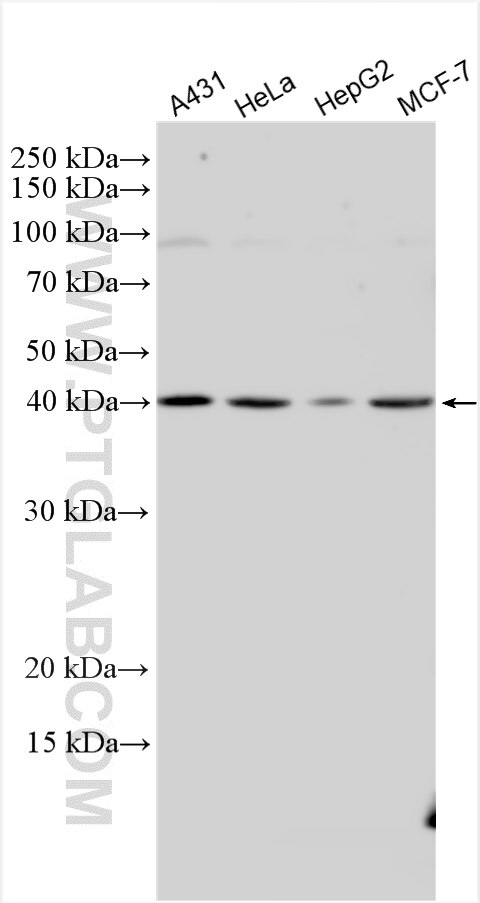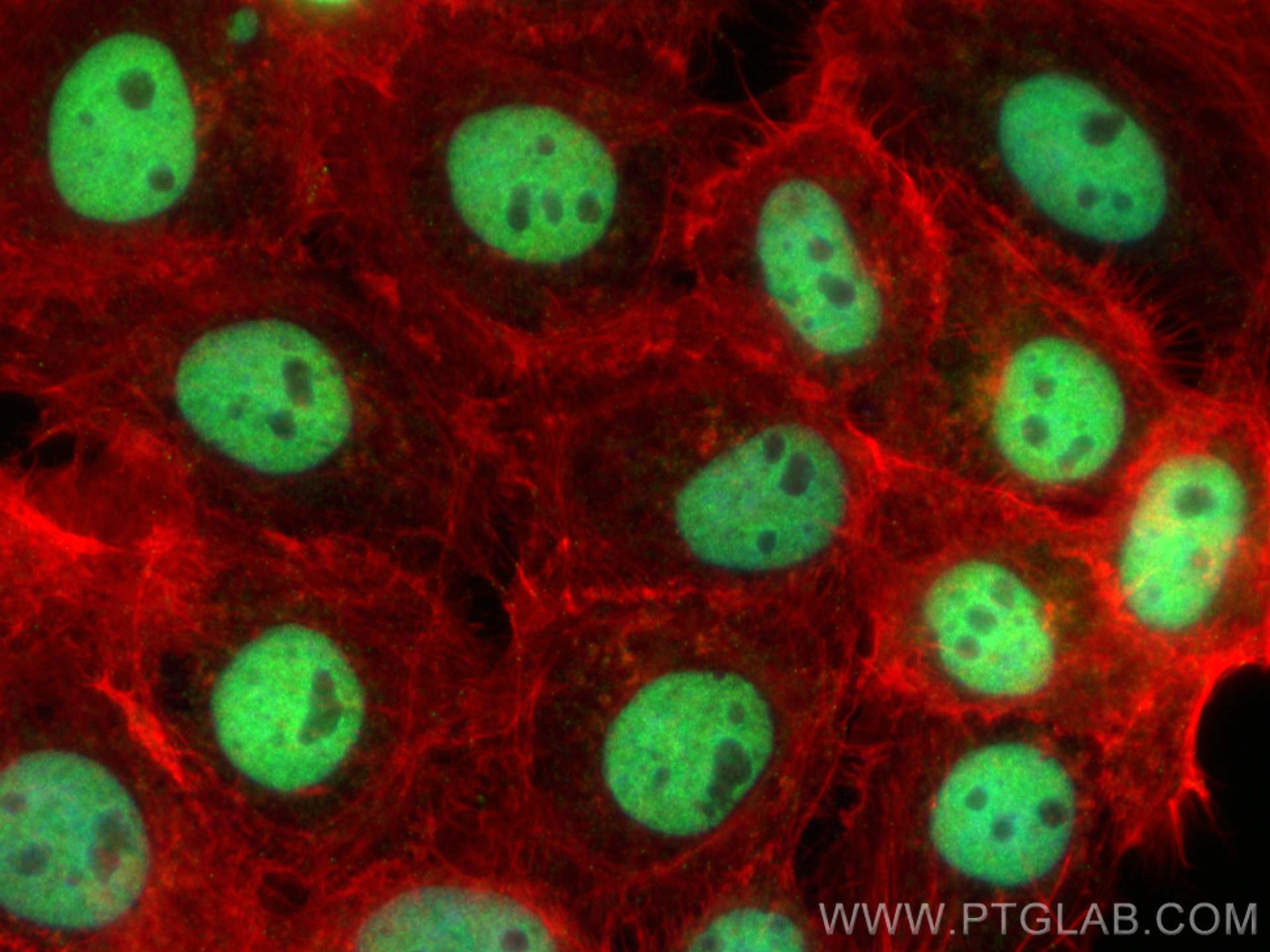Anticorps Polyclonal de lapin anti-IPMK
IPMK Polyclonal Antibody for IF, WB, ELISA
Hôte / Isotype
Lapin / IgG
Réactivité testée
Humain
Applications
WB, IF, ELISA
Conjugaison
Non conjugué
N° de cat : 30161-1-AP
Synonymes
Galerie de données de validation
Applications testées
| Résultats positifs en WB | cellules A431, cellules HeLa, cellules HepG2, cellules MCF-7 |
| Résultats positifs en IF | cellules A431, |
Dilution recommandée
| Application | Dilution |
|---|---|
| Western Blot (WB) | WB : 1:1000-1:8000 |
| Immunofluorescence (IF) | IF : 1:200-1:800 |
| It is recommended that this reagent should be titrated in each testing system to obtain optimal results. | |
| Sample-dependent, check data in validation data gallery | |
Informations sur le produit
30161-1-AP cible IPMK dans les applications de WB, IF, ELISA et montre une réactivité avec des échantillons Humain
| Réactivité | Humain |
| Hôte / Isotype | Lapin / IgG |
| Clonalité | Polyclonal |
| Type | Anticorps |
| Immunogène | IPMK Protéine recombinante Ag32377 |
| Nom complet | inositol polyphosphate multikinase |
| Poids moléculaire observé | 42-47 kDa |
| Numéro d’acquisition GenBank | BC065709 |
| Symbole du gène | IPMK |
| Identification du gène (NCBI) | 253430 |
| Conjugaison | Non conjugué |
| Forme | Liquide |
| Méthode de purification | Purification par affinité contre l'antigène |
| Tampon de stockage | PBS avec azoture de sodium à 0,02 % et glycérol à 50 % pH 7,3 |
| Conditions de stockage | Stocker à -20°C. Stable pendant un an après l'expédition. L'aliquotage n'est pas nécessaire pour le stockage à -20oC Les 20ul contiennent 0,1% de BSA. |
Informations générales
IPMK plays an important role in MLKL-mediated necroptosis via its role in the biosynthesis of inositol pentakisphosphate (InsP5) and inositol hexakisphosphate (InsP6). It is required for normal embryonic development, probably via its role in the biosynthesis of inositol 1,3,4,5,6-pentakisphosphate (Ins(1,3,4,5,6)P5) and inositol hexakisphosphate (InsP6).
Protocole
| Product Specific Protocols | |
|---|---|
| WB protocol for IPMK antibody 30161-1-AP | Download protocol |
| IF protocol for IPMK antibody 30161-1-AP | Download protocol |
| Standard Protocols | |
|---|---|
| Click here to view our Standard Protocols |



